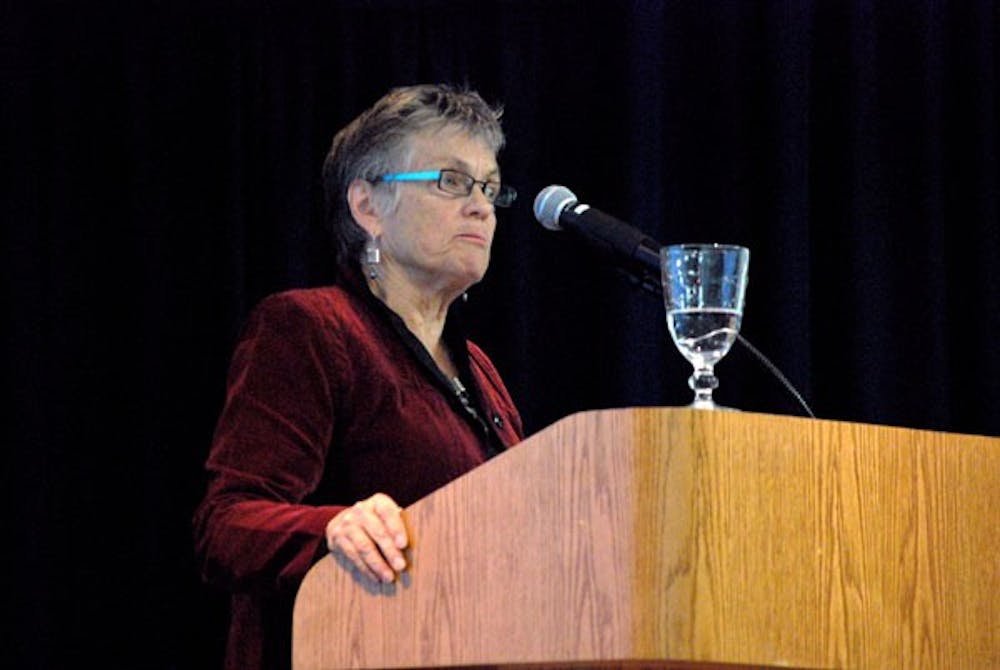Lecture about genocide fills Bovee University Center auditorium

Claudia Koonz has dedicated years of her life to studying how ordinary people can justify committing acts of mass genocide, including the Holocaust.
On Tuesday night, the Bovee University Center auditorium was filled with Mount Pleasant residents and CMU students anxious to hear the visiting Duke University professor’s presentation, “Genocide and the Moral Order in a Globalized World.”
Koonz urged students to go home for the holidays and speak to their grandparents and relatives.
“Find the grass roots, I guarantee they’ll have something interesting to say,” Koonz said.
The series is part of Humans Right Month in November.
Koonz answered the key question for her presentation: How can a culture create a movement or identity so powerful that people who are a part of it feel that other people are barely human?
“The tragedy is obvious,” Koonz said. “What I’m interested in is what people said, what they thought about what they were doing.”
Her presentation was a part of the Dr. Harold Abel Endowed Lecture Series in the study of dictatorship, democracy and genocide.
Committee Chairman and history professor Eric Johnson was intrigued to find out what Koonz would say.
“I don’t think there is anybody more capable of doing this,” Johnson said. “I’m thrilled to have her here.”
Rochester senior Christopher DeEulis was impressed by the presentation.
“I had to do it for a class and didn’t know what to expect, but I’ve learned a lot of cool stuff today,” he said.
Some felt the time shortage was a shame.
“I feel like she had more to say about the topic but she was short on time,” said Lake Orion senior Christopher Mocny.
Koonz has a Guggenheim award and has written several award-winning books about women in Europe. She has now moved on to study the history of genocide in the world.
Tuesday was chosen as the date for the presentation because it was also the “Night of Broken Glass.”
In 1938 on that day, 30,000 Jews were sent to concentration camps and 267 synagogues were burned down.
Koonz said when a community is frightened, they re-draw the fences of their moral boundaries if they think it will keep them safe.
From years of research, she has concluded that every culture has its own kind of truth and rationalizations.
“It’s important for us to get in the minds of historical figures who made genocide righteous,” Koonz said.
She said we have to resist the temptation to generalize entire cultures by their few radicals.
Koonz left the audience with optimistic words.
“I think there will never be another Holocaust in the industrialized world,” Koonz said. “We are sensitized.”



